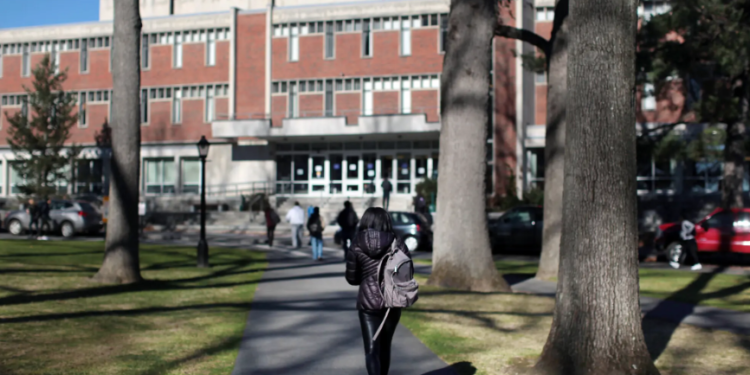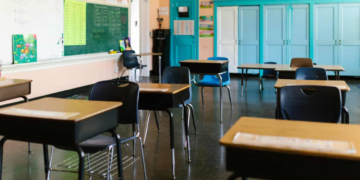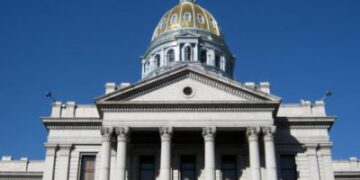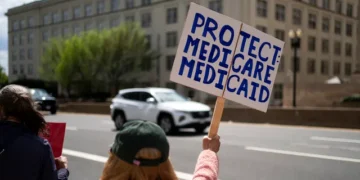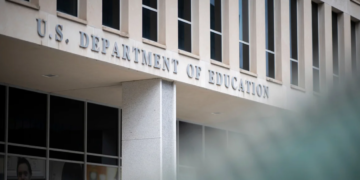Aug 30, 2024 Story by: Editor
A decline in the percentage of Black first-year students at two prestigious colleges this academic year offers an early indication that the Supreme Court’s decision to end affirmative action may impact racial diversity, particularly at some of the nation’s more selective institutions.
At Amherst College, a small liberal arts college in Massachusetts, the share of Black students for the incoming class dropped sharply by eight percentage points, according to data released on Thursday. At Tufts University, a larger private school near Boston, the decrease was less pronounced. Meanwhile, the University of Virginia, which released its data on Friday, also saw a slight dip in the percentage of Black students.
This comes in the wake of the Massachusetts Institute of Technology’s announcement last week that Black enrollment had dropped significantly, by 10 percentage points.
Amherst’s data revealed a sharp increase in the enrollment of white students, while the percentage of Asian American students saw a slight rise.
These figures contribute to a developing picture of how the Supreme Court’s ruling, which banned race-conscious admissions across U.S. colleges and universities, could alter higher education. Many elite universities that previously used affirmative action have yet to disclose data for their upcoming classes.
The Supreme Court ruling disrupted over four decades of established admissions practices. Affirmative action supporters warned of an immediate negative effect on diversity, potentially rippling throughout society. The new data reflects enrollment rather than admissions because the Court barred admission officers from considering race, except if it emerged naturally, such as in a personal essay.
Amherst’s Dean of Admissions, Matthew L. McGann, openly acknowledged the court’s ruling in communications to the class of 2028 and the broader community, stating, “As a consequence of the Supreme Court’s decision, the incoming class is not as racially diverse as recent classes have been. Other institutions have seen similar impacts, and all colleges and universities are evaluating the outcomes of this first admission cycle under the new legal standard.”
The percentage of Black students entering Amherst this fall dropped to 3%, down from 11% last year. At Tufts, the number fell to 4.7% from 7.3%, and at the University of Virginia, Black students made up 7% of the incoming class, compared to 7.9% the previous year.
White students at Amherst increased to 39% of the class, up from 33%, while at Tufts, they rose to 49.3% from 46.8%. The percentage of Asian American students at Amherst increased slightly to 20% from 18%, but at Tufts, it dipped to 19.7% from 20.3%.
Hispanic enrollment at Amherst fell to 8% from 12%, with similar declines reported at MIT. However, the percentage of Hispanic students rose slightly at Tufts and the University of Virginia. At the University of Virginia, the proportion of white and Asian students decreased marginally.
Richard Sander, a law professor at UCLA and an expert on admissions data, suggested that the Supreme Court ruling is likely to have a less pronounced impact on Hispanic students than on Black students. Historically, admissions offices have shown less preference for Hispanic students, and the Hispanic college-age population has grown substantially in comparison to white students.
MIT’s data showed a sharp drop in Black enrollment, from 15% to 5%, while Asian American students rose from 40% to 47%.
Opponents of affirmative action argue that the decline in racial diversity will be temporary as universities find new ways to promote diversity, such as focusing on socioeconomic status.
At the University of Virginia, a public institution, the state has established partnerships with low-income public schools across the state to aid recruitment efforts. Justin Driver, a Yale Law School professor and expert on the Supreme Court’s rulings on education, praised the Virginia program as a potential model, noting, “It is a fine example of how universities can be creative, consistent with the Constitution, to avoid the plummeting enrollment of Black students that some universities have already witnessed.”
Nevertheless, Driver expressed concern that many admissions offices are struggling to navigate the new legal landscape, warning, “We stand on the cusp of what I fear will become a lost generation of Black students at many leading colleges.”
At Emory University in Georgia, another selective institution, the racial composition of this year’s freshman class saw only slight changes. The proportion of Black and Hispanic students dropped slightly, as did the percentage of white students, while the percentage of Asian students and those whose race was unknown increased.
The figures are particularly notable at Amherst, which has long been recognized for its outreach to Black students. According to the Journal of Blacks in Higher Education, Amherst topped its list of elite liberal arts colleges enrolling the highest percentage of Black first-year students in 13 of the past 28 years.
Amherst and other liberal arts colleges warned of the potential consequences of the Supreme Court’s ruling in a court brief last year, stating that a race-blind admissions policy could reduce the proportion of Black, Hispanic, and Native American students by about half.
Amherst’s President, Michael A. Elliott, reiterated the school’s commitment to diversity and said the college is exploring new ways to recruit a diverse student body. He also expressed concern about how current students might be affected by the demographic shifts, noting, “On a small campus, the drop in demographic population can change the experience for those students. One of the unfortunate circumstances of the ruling is that it might diminish the sense of belonging that a student feels here. And we do not want that to occur.”
Tufts Dean of Admissions, Joseph Duck, also known as JT, explained that the fluctuations in enrollment figures were partly due to a doubling of applicants who did not disclose their race or ethnicity. He cautioned against drawing conclusions from the data just yet, stating, “There are different ways to present the data, as we are seeing as colleges and universities begin to report their results. As for why certain groups went up or down, we’re continuing to examine the data.”
The data for most colleges is derived from self-reported information on student applications. After the Supreme Court decision, admissions committees generally did not view applicants’ race until the waitlist phase. Schools’ racial breakdowns also include Native American, Pacific Islander, and Native Hawaiian students, those who marked two or more races, and those who did not disclose their race, groups that typically represent smaller portions of incoming classes.
Data for Harvard University and the University of North Carolina, whose admissions practices were challenged by the Students for Fair Admissions group, leading to the Supreme Court’s ruling, have not yet been released. Their figures are expected to be key indicators of the ruling’s impact.
Richard Sander suggests that the most elite institutions may feel the impact of the affirmative action ban more than less selective schools. He predicts schools that offer a strong education without relying on affirmative action will likely see increased Black enrollment.
“The students not admitted to the M.I.T.s or Amhersts of higher education are well-qualified to be admitted without a preference to other very solid schools,” Sander said.
Regardless of opinions on the ruling, Sander referred to it as “a natural experiment” with significant implications for policymakers regarding race-conscious admissions. Source: The New York Times


